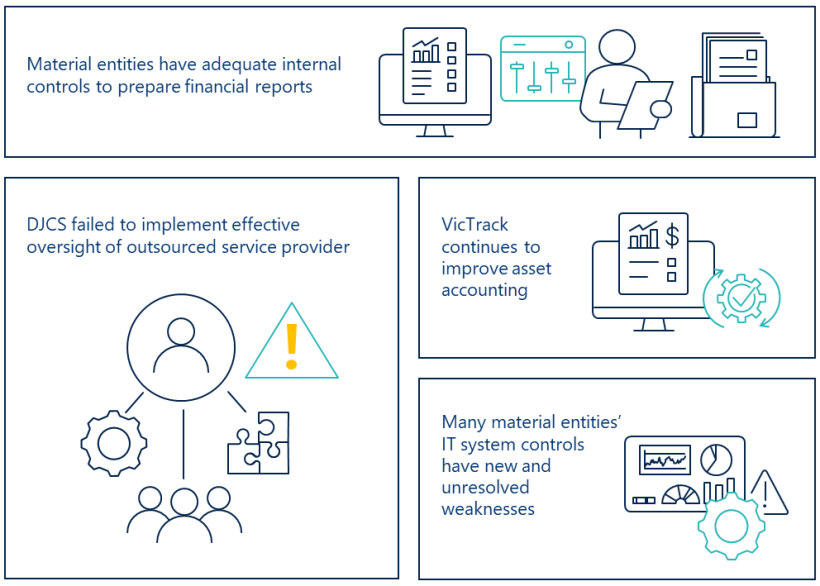1. Why we do this report and what we look at
In this report, we share outcomes of our audit on the state's financial report and share our independent perspective on the state's financial outcomes and risks to fiscal sustainability.
We also share the audit outcomes of state-controlled material entities that make up significant components of the state's finances.
Our audit opinions provide confidence that the financial reports of the state and material entities are reliable to use and inform decision-making.
Our recommendations
We consulted with the audited agencies and considered their views when reaching our conclusions. The agencies' full responses are in Appendix A.
This year's recommendations
| Recommendations | Agency response(s) | |||
|---|---|---|---|---|
| Department of Treasury and Finance | 1
| Work with the government to: | ||


